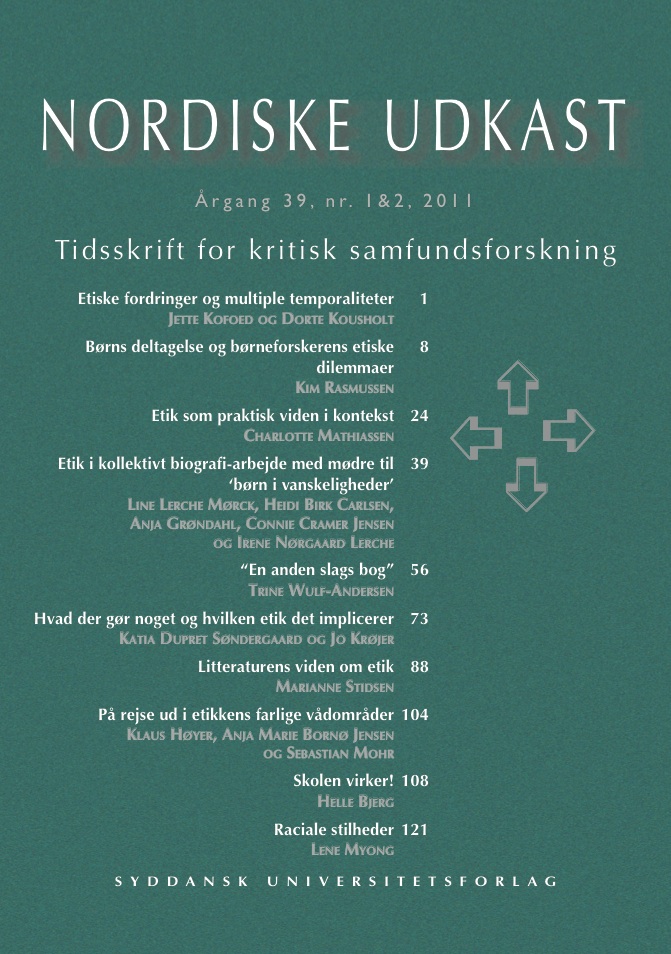Ethics in collective biographical work with mothers of children in difficulties
DOI:
https://doi.org/10.7146/nu.v39i1.134473Keywords:
social practice ethics, collective biography-work, children in difficulties, be- havioral-based diagnoses.Abstract
This article’s approach to ethics provides ex- amples on research methodology and social practice ethic that moves “on the edge” (Wyatt & Davies, 2011: 1), and challenge the more widespread institutionalized ethics (Badiou, 2002). Institutionalized ethics typically have the form of universal standards, as we know from the university ethics committees, from the DPA, and statements of all children’s right to education (see Salamanca Statement). Thus we write in a continuation of a discussion of ethics, which can be found within the international
progressive qualitative methodologies such as participatory research with oppressed groups, or “the others” participating from marginal positions in society. The article provides social practice theoretical ideas of how to understand ethics, this include how we can work to tran- scend ethical dilemmas when we as mothers to “children in difficulties” conduct collective biography-work using our own memories and our own life experiences. The subject field is the behavioral-based diagnostic significance: What do they do to “us”? The “us” should be understood broadly as both the professionals who work with ‘the children in difficulties’, the families, including parents and children as part of a socio-historical changing practice of diagnostics standards.




